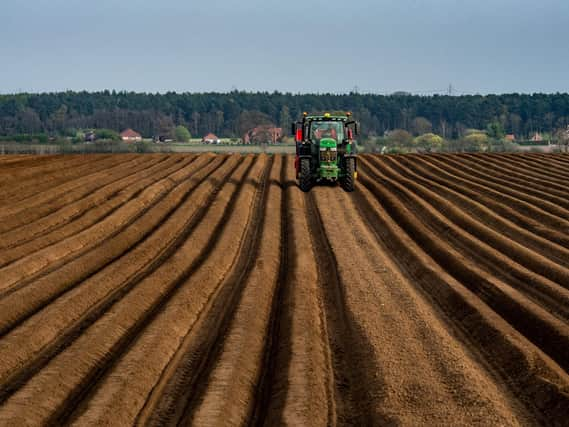Farmers remain optimistic about the future despite "significant" mental health challenges, Big Farming Survey results find


The Big Farming Survey commissioned by farming help charity, RABI, found that despite the “significant” mental and physical health challenges, more than 50 per cent of the 15,000 respondents remain optimistic about the future of their farm businesses.
On the back of the findings, which were produced in collaboration with the University of Exeter’s Centre for Rural Policy Research Team, the charity has also highlighted five key areas it feels the industry must respond to.
Advertisement
Hide AdAdvertisement
Hide AdAt the launch event in front of 70 representatives from the agricultural sector on Thursday, RABI corporate partnership manager, Suzy Deeley, outlined these key findings which were:
Thirty-six percent of the farming community is probably or possibly depressed.
Over one-half of women (58 per cent) experience mild, moderate or severe anxiety.
An average of six factors cause stress across the farming community. The most commonly reported sources of stress are: regulation, compliance and inspection, Covid-19, bad/unpredictable weather, loss of subsides/future trade deals.
Advertisement
Hide AdAdvertisement
Hide AdOver half (52 percent) of the farming community experience pain and discomfort, one in four have mobility problems and 21 per cent have problems in undertaking usual tasks due to health issues.
Fifty-nine per cent of respondents believe their business is viable over the next five years.
Ms Deeley told the audience: “This survey of a generation has revealed that despite the many challenges facing our community, farming people continue to be incredibly resilient and this is something we should focus on.
“We owe it to every farming person to use this evidence to take action to improve farmer wellbeing.”
Advertisement
Hide AdAdvertisement
Hide AdBut, she said, the charity believed the farming community and the wider sector must collaborate to find solutions to the issues the survey has identified.
Ms Deeley went on to outline RABI’s response to the research explaining that the charity would soon be launching pilots for three new support schemes.
These include an accredited, bespoke farming mental health first aid training service, access to in-person mental health support, and further trials of RABI’s Community Pillars initiative.
“The introduction of the pilot schemes will be in addition to the long-standing, traditional support services that RABI is so well known for, and to complement the online wellbeing platform, Qwell, which we launched last year.
Advertisement
Hide AdAdvertisement
Hide Ad“We’re hugely grateful to all the delegates who attended the launch and for their valuable contribution to these important discussions.
“We have demonstrated that there is a real appetite to work together to address the challenges facing farmers.”
Commenting on the research, Professor of Rural Resource Management at the University of Exeter and research lead, Matt Lobley, said: “The Big Farming Survey has delivered an unprecedented evidence base that has given far greater insight into the realities of life on farm.
“There is now a unique opportunity to build on the findings which have been presented.”